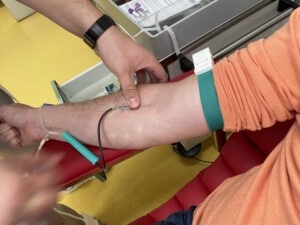
Our pets give us unconditional love. In return, it’s our job to keep them healthy and happy.
“Food is medicine for pets, just as it is for people,” says Sarah Reidenbach, DVM, a veterinarian in Northern California and CEO of the nonprofit organization, Ruthless Kindness. “If your dog’s or cat’s diet lacks certain vitamins and minerals, the nutritional shortfall can show up as hair loss, skin infections, or a noticeable sluggishness,” she says.
With so many pet food choices available — wet, dry, refrigerated, home-cooked, grain-free — how do you know which one is best for your furry friend? “It’s completely overwhelming,” Reidenbach acknowledges. “Really, what works for your pet is your guiding principle.”
She recommends that you check the package to make sure the brand meets the Association of American Feed Control Officials (AAFCO) standards, which certifies that the food contains balanced nutrition.
If you have a high-energy dog, try an agility course, or take your dog with you for a hike, skate, or swim. For more of a bonding experience, do a downward-facing dog with your real dog during an in-person or online yoga class. Just make sure your dog is well-behaved enough to stay by your side through the whole class.
Stick to the recommended portion size, and don’t give in to those sad puppy eyes when your pet begs for treats. Obese dogs and cats can get the same chronic diseases as overweight humans, including diabetes and arthritis.
Exercise is essential for your pet’s physical health and mental stimulation. But unlike humans, there aren’t any guidelines on how much activity they need. Different breeds have different requirements, Reidenbach says. You can get a sense of your pet’s activity level when you play together. “Some breeds and personalities definitely need more stimulation than walking,” she adds.
Cats aren’t the best walking companions, but you can still keep them from getting too sedentary by incorporating play into every day. “Most cats like toys that remind them of prey — things like dangling feathers or little cloth mice,” Reidenbach suggests.
If your pet has slowed down from arthritis, try veterinary acupuncture. Just like its human counterpart, this technique uses very thin needles to stimulate various pressure points around the animal’s body. Research shows acupuncture helps to improve movement and relieve pain in dogs and cats. Plus, some pets find it relaxing.
One of the most important things you can do for your pet is to take them for vet visits about once a year and get all their scheduled vaccinations. During those appointments, bring up anything that doesn’t seem right. “Coughing, vomiting, losing weight, going to the bathroom in the house more than normal — anything that seems off to you,” Reidenbach says.
4 Tips Reidenbach shares practical advice on how to keep your pet healthy.
1. Limit human foods. Too many table scraps can lead to weight gain. Be extra careful about people foods like chocolate, grapes, raisins, garlic, and macadamia nuts, which are toxic to pets.
2. Don’t overdo supplements. Most are not well-studied in animals. Ask your vet before you give your pet any supplement.
3. See a behavior specialist. Veterinary behaviorists can help with issues like separation anxiety, aggressiveness, or excessive fear.
4. Pay attention to your pet’s cues. Let your dog or cat tell you what makes them happy, whether that’s a belly rub or some extra space.





















